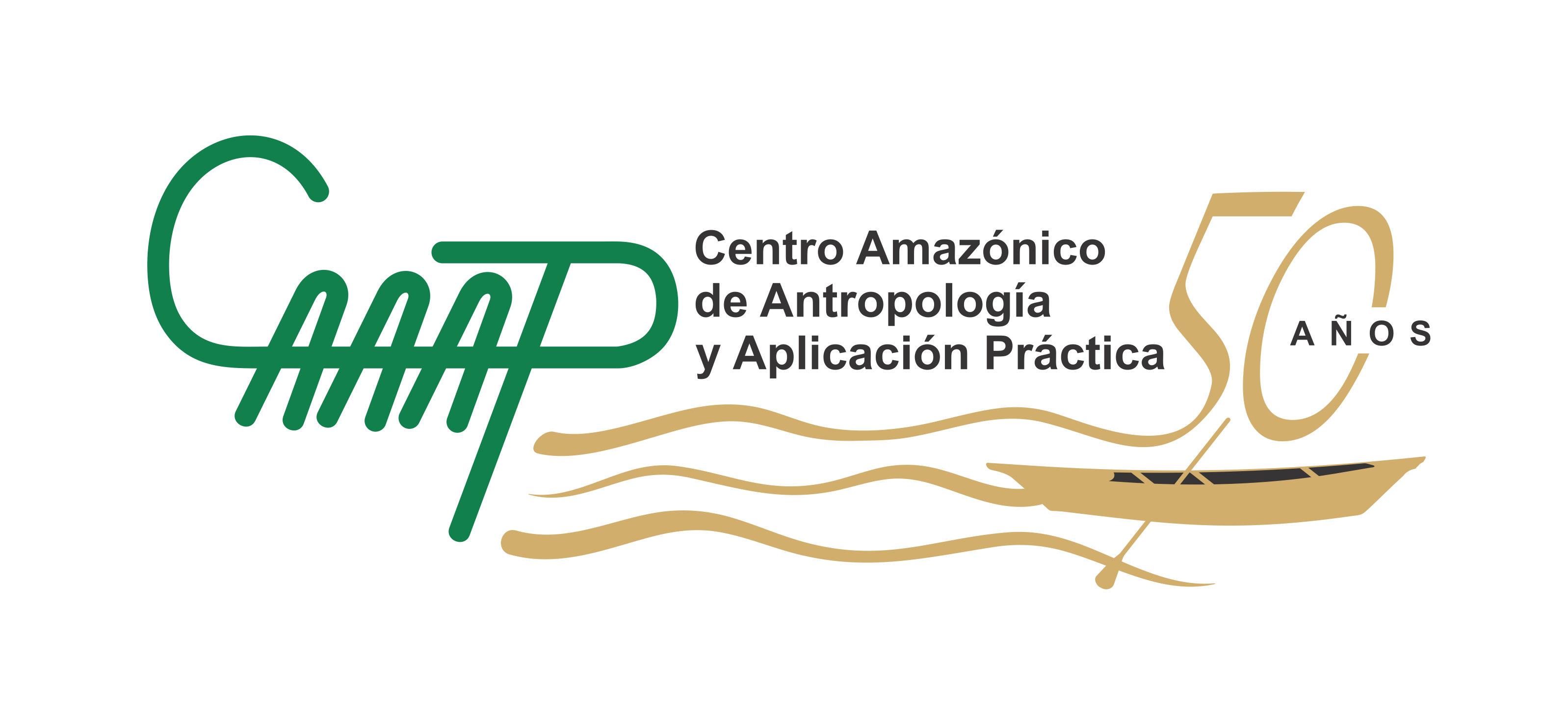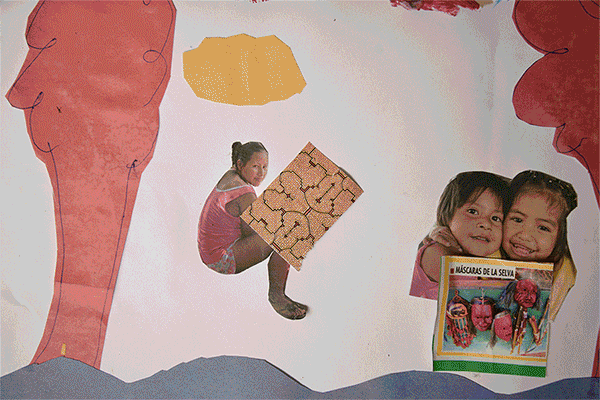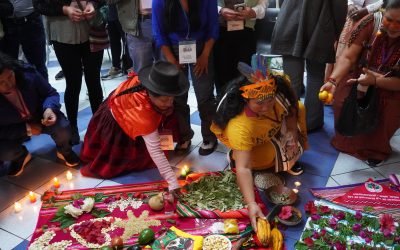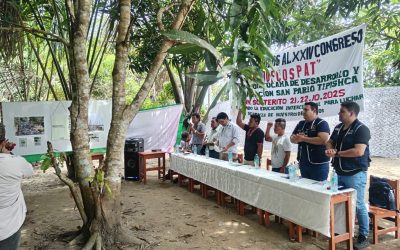
Photo of the work being done with the kids at the intercultural elementary school of the Shipibo urban community in Bena Jema (in central Peru) to paint a mural showing the four worlds of the Shipibo cosmovision. Photography from the Facebook page of the Arkana Alliance, February 2015, used with permission.
Alianza Arkana / The Arkana Alliance (AA), in its own words, “is a grassroots alliance regenerating the Peruvian Amazon by supporting its indigenous people and their traditions. One of its projects, “Chariboan Joi” — which in the Shipibo language means “Voices Soaring Like the Maracaná Macaw” — was among the grantees of the 2014 Rising Voices Amazonia initiative that aimed at “disseminating on the internet stories, traditional knowledge and everyday experiences.”
According to the Arkana Alliance, “The wellbeing of life on Earth depends on the resilience of the Amazon rainforest and its people. Community alliances for regeneration are essential to growing this resilience. The Arkana Alliance creates mutual relationships with communities in the Peruvian Amazon to cultivate sustainable solutions and creatively confront the array of eco-social challenges we face today.”
In practice, the group that makes up the Arkana Alliance is quite diverse. It consists, on the one hand, of foreigners coming mostly from European countries, and on the other, of members of the Shipibo indigenous communities from the region. This gives us a vision of the intercultural work promoted by the AA.
According to Dr. Paul Roberts, one of the founders of the Arkana Alliance, the idea is “to build solid long-term partnerships with indigenous organizations and communities, aiming at strengthening the Shipibo culture.” An example of these partnerships was the “Seeds for the Amazon” program launched by AA a few years ago, an indigenous youth-led community program for the regeneration of the Peruvian Amazon.
However, Dr. Roberts says it is not so easy to carry out this intercultural work:
One way to succeed has been to involve the Shipibos themselves in the management of the projects:
Roberts also mentions another example of their work:
Solidarity and struggles for the environment
The Arkana Alliance is also involved in the struggles of several other indigenous communities, not only of the Shipibo. Thus, it helps to spread throughout the world the message of indigenous leaders. An example is the following video in which, during an interview about the 40 years of pollution in the Peruvian Amazon, Alfonso Lopez, leader of the Kukama community, asked the international community to support his people’s struggle in defending the environment, its life and rivers:
A good way to learn about the activities of the Arkana Alliance is through its blog, published in Spanish and English. For example, this post about its major achievements in 2015 is very interesting, or another post on the publication of “Learning from the Peruvian Amazon” (which can be downloaded for free) written by Dr. Paul Roberts, Director of Intercultural Education for the Arkana Alliance, and Laura Dev, PhD student at the University of Berkeley, California.
______________________________________________________
Fuente: Global Voices





